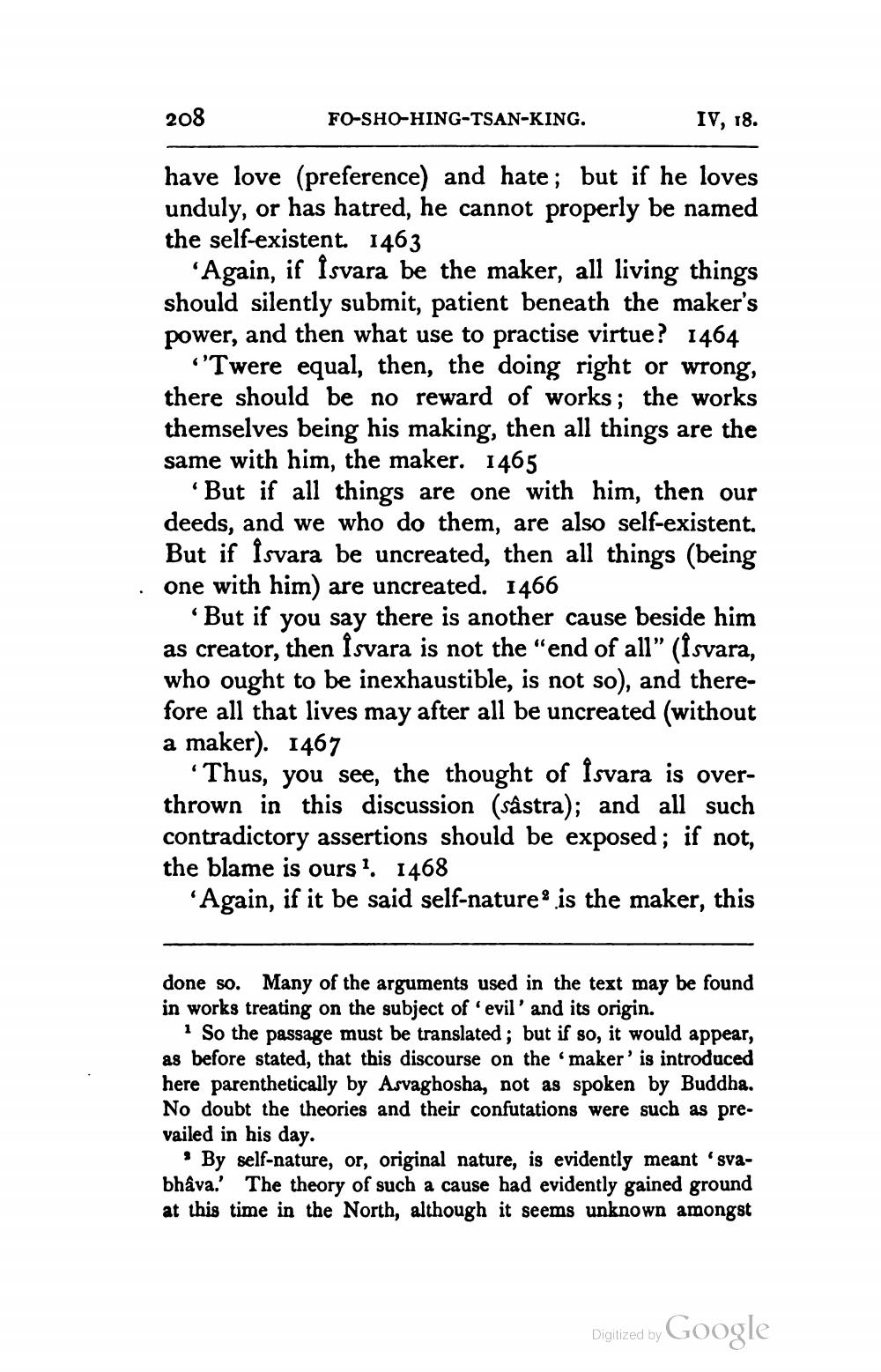________________
208
FO-SHO-HING-TSAN-KING.
IV, 18.
have love (preference) and hate; but if he loves unduly, or has hatred, he cannot properly be named the self-existent. 1463
'Again, if I svara be the maker, all living things should silently submit, patient beneath the maker's power, and then what use to practise virtue? 1464
''Twere equal, then, the doing right or wrong, there should be no reward of works; the works themselves being his making, then all things are the same with him, the maker. 1465
But if all things are one with him, then our deeds, and we who do them, are also self-existent. But if Isvara be uncreated, then all things (being one with him) are uncreated. 1466
'But if you say there is another cause beside him as creator, then Isvara is not the "end of all” (Isvara, who ought to be inexhaustible, is not so), and therefore all that lives may after all be uncreated (without a maker). 1467
‘Thus, you see, the thought of Isvara is overthrown in this discussion (sâstra); and all such contradictory assertions should be exposed; if not, the blame is ours. 1468
'Again, if it be said self-nature is the maker, this
done so. Many of the arguments used in the text may be found in works treating on the subject of 'evil' and its origin.
So the passage must be translated; but if so, it would appear, as before stated, that this discourse on the maker' is introduced here parenthetically by Asvaghosha, not as spoken by Buddha. No doubt the theories and their confutations were such as prevailed in his day.
• By self-nature, or, original nature, is evidently meant 'svabhava.' The theory of such a cause had evidently gained ground at this time in the North, although it seems unknown amongst
Digitized by Google




